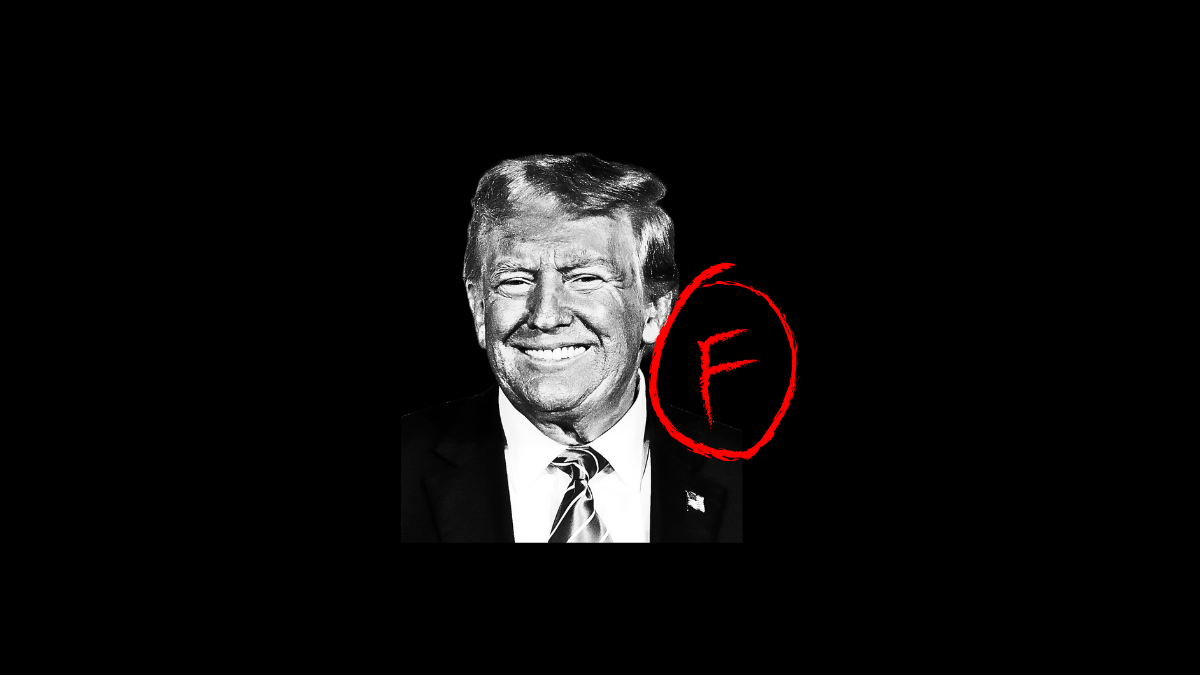As President Donald Trump celebrates his first 100 days in office, a new PBS News/NPR/Marist poll finds that a plurality of Americans give him a failing grade.
Forty-five percent of U.S. adults rate Trump’s return to the Oval Office an “F,” including 80% of Democrats and 49% of independents. At the other extreme, only 23% of Americans gave the president an “A.” More people gave Trump an “F” than any other grade.
Lee Miringoff, director of the Marist Institute for Public Opinion, said the fact that independents are “not at all in his corner right now is something that may ultimately serve as a wake-up call” to some members of Congress who will have to face voters in the midterm elections.
A majority of Americans — 53% — disapprove of Trump’s leadership versus 42% who approve. The percentage of Americans who strongly approve of Trump has dropped six points since March.
Trump’s immigration numbers are dropping as well. Overall, 44% of Americans approve of his handling of immigration, compared to 52% who disapprove. 49% disapprove of how the Trump administration has handled the mistaken deportation of Kilmar Abrego Garcia, versus just 35% who say they approve.
Elon Musk’s favorability continues to sink. Thirty-seven percent of Americans say they have a favorable view of Musk, down from 39% in March. That change is mirrored by public opinion on the Department of Government Efficiency (DOGE), which is favored by 36%, down from 39% in March.
Although the president repeatedly promised to turn around Americans’ financial prospects on Day 1, the prices of many essentials haven’t come down. 64% of Americans say they think grocery prices will rise in the next six months.
When asked about Trump’s handling of the economy, 39% said they approved. And Americans remain concerned about Trump’s tariffs, with 58% disapproving versus 34% who approve.
Mark Knapchuck Jr. is a Michigan independent who voted for Trump in 2017. A truck driver for about 20 years, Knapchuck said tariffs have hurt all of the plants where he makes deliveries. He’s also stopped purchasing as many electronics and plans to not buy any more cars until his current vehicle can no longer be fixed. Consumers often have to foot the bill for tariffs, he added.
“At the end of the day, it’s us that has to pay,” Knapchuck said.





